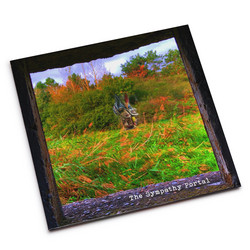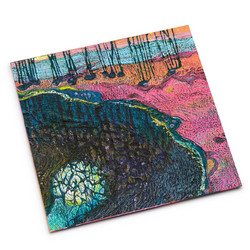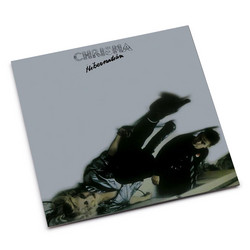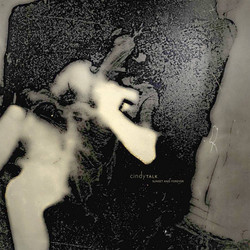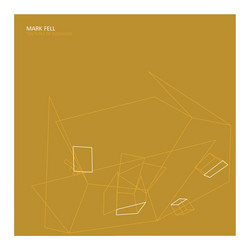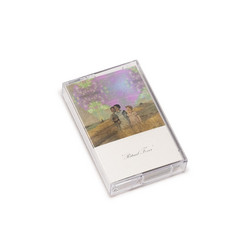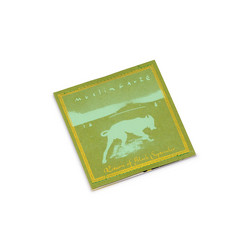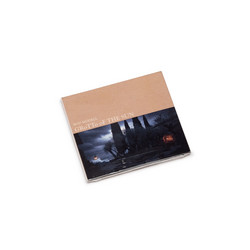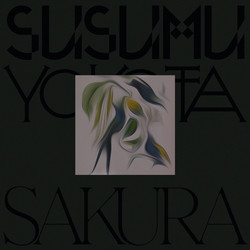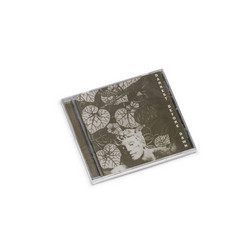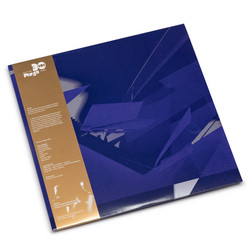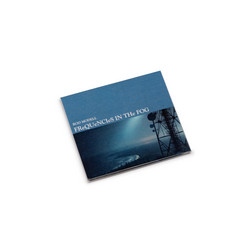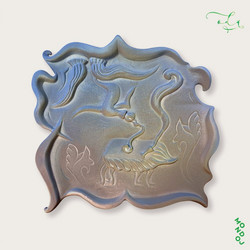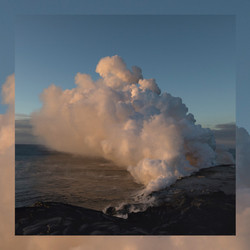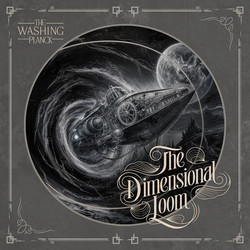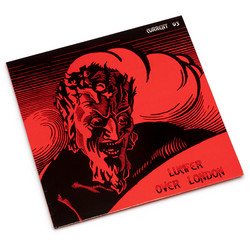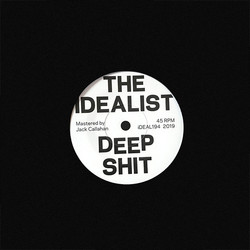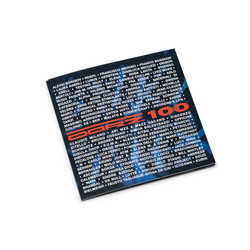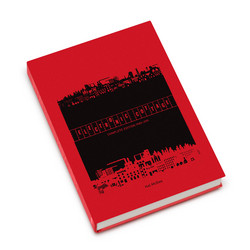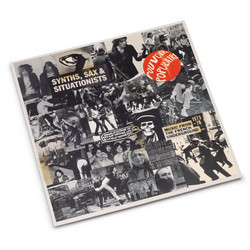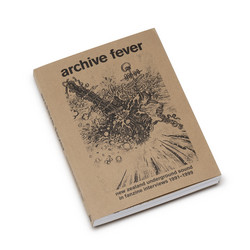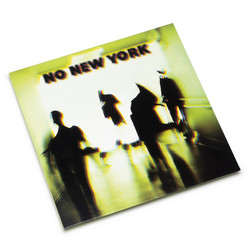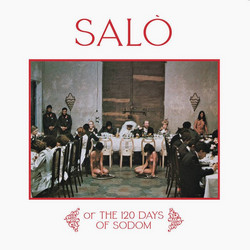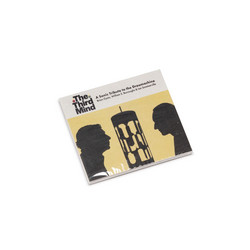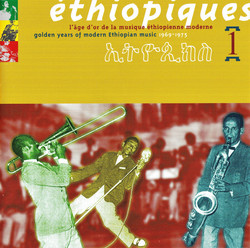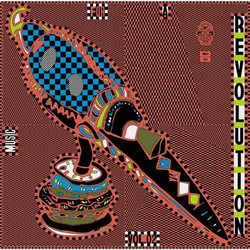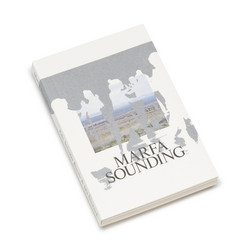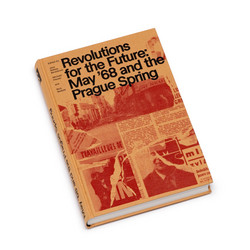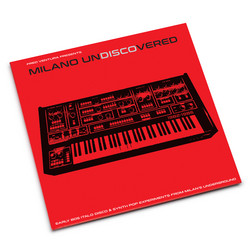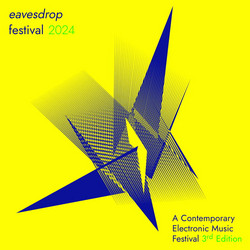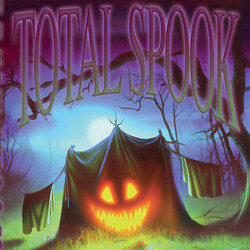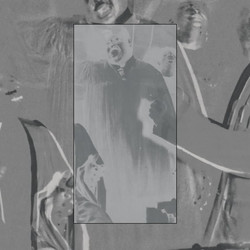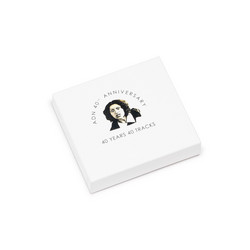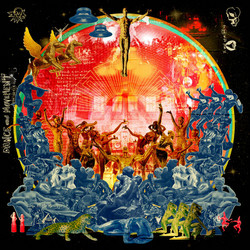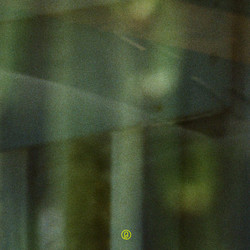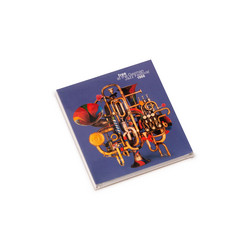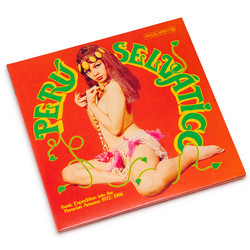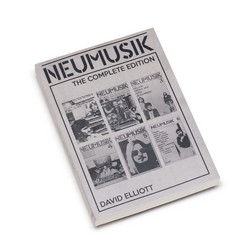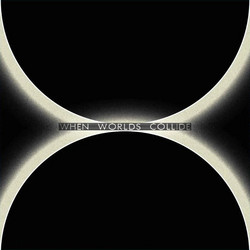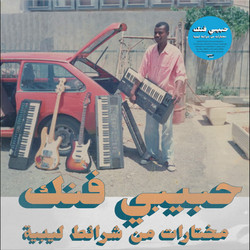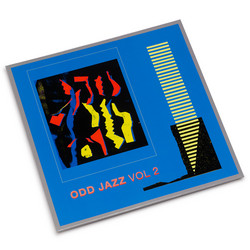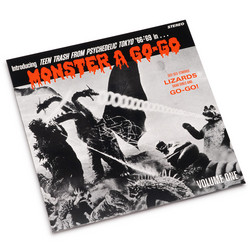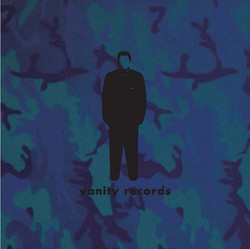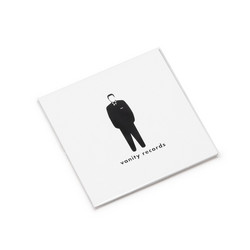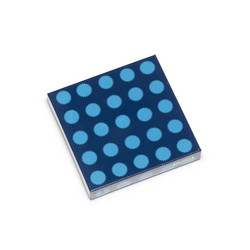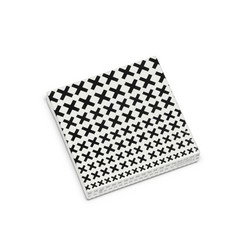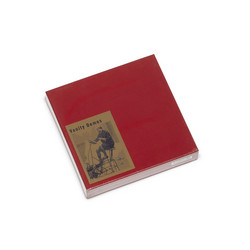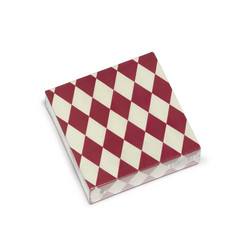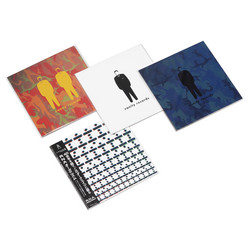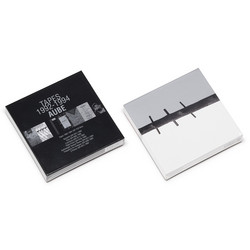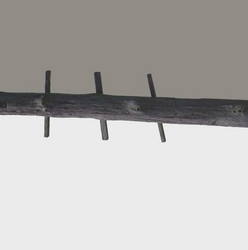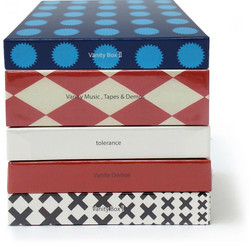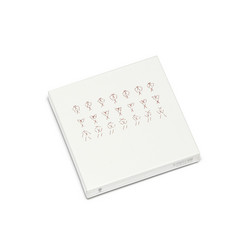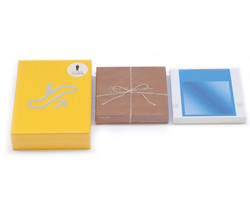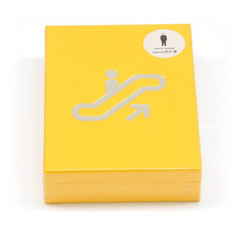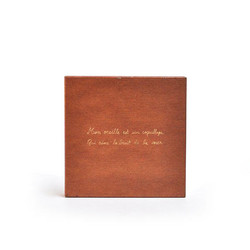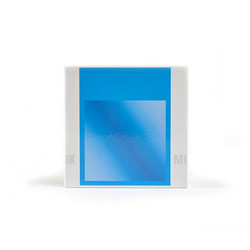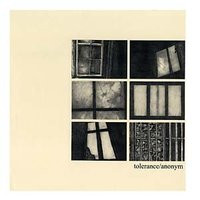This bundle gathers together the four recently issued Vanity Records Box Sets, and includes 27 CDs in total:
Various - Vanity Records 'Music, Tapes & Demos' (11CD Box)
Various - Vanity Records 'Demos' (6CD Box)
Various - The Vanity Box Vol. 1 (5CD Box)
Tolerance - Vanity (5CD Box)
Here's details about the contents of each box-set:
Various - Vanity Records 'Music, Tapes & Demos' (11CD Box)
CD-1 & CD-2 Various - Music 1 & 2
Music (or Musik) was a compilation originally released in 1981 as a double vinyl box. It is a selection of thirteen artists’ tracks that were chosen from over 100 cassette tape demos sent to Rock Magazine from all over Japan. It is also a monumental piece of work that documents early, experimental home recording music from Japan that emerged out of the advent of affordable synthesizers and multi-track recorders in the mid-1980s, stimulating the underground music scene of the era. With the exception Adode/Cathode (who released music from Daigoretsu and Pinakotheka), Tokyo led by Munehiro Narita (High Rise), Plazama Music (predecessor of B.C. Lemons), Arbeit (a group by designer Achim Duchow who created front cover artwork for Rock Magazine), Kiiro Radical and Invivo who separately released cassettes on Vanity, and Yuzuru Agi’s solo alias New York (that featured his field recordings from a visit in New York), all other artists are anonymous and their information is shrouded in mystery. Riddled with tape hiss noise and exceedingly low-fi sound quality, it is an accumulation of various ideas and DIY style from early ‘80s Japanese underground.
CD-3 Salaried Man Club - Gray Cross
Gray Cross features the signature sound of the trio Salaried Man Club who declare their white collar identity loudly with the industrial sound of an intellectual worker. They used to perform regularly at the club dee-Bee’s in Kyoto. They also appeared in Ylem’s compilation Awa (Foam).
CD-4 Kiiro Radical - Denki Noise Dance
Kiiro Radical (Yellow Radical) is a group formed by Masaaki Mochida from Yonago City in Tottori Prefecture. The subtle, calculated, meticulous minimal electric noise ecstasy that Mochida presented was critically acclaimed by Agi as “the pinnacle of Japanese electronic music now” at the time of release. He also has 5 pieces included in the compilation Musik.
CD-5 Densei Kwan - Pocket Planetaria
Densei Kwan is the group of Hidetsugu Saito from Fukushima. “Like a cause and effect interaction, the light bulb hidden in the boy’s trouser pocket, was actually a marble that was making some crashing sounds (pocket planetarium general statement)”. The original cassette release includes this Taruho Inagaki-esque quote attached to the quintessential electron (Densei Kwan) stirring up a miniature garden-like noise universe.
CD-6 Invivo - B.B.B.
This is a project produced by Masao Tachibana from Zushi city. The first 6 tracks are called In Vivo: Inside The Living Organism and the remaining 6 tracks are entitled In Vitro: Inside a Test Tube. It is a biological term penned document of a bio-mutant generational experiment of atmospheric sounds. Invivo had one track included in the Musik compilation.
CD-7 Wireless Sight - Endless Dark Dream
This is a project by Kunie Wakae who published the mini magazine called Musenongaku. Just playing piano, metronome, and radio noise, this artist created peaceful, post classical, spacious ambient sketches. He also did performances with visuals and dancers.
CD-8 Nishimura Alimoti - Shibou
Ami Nishimura’s ensemble’s album, Shibou. With a band consisting of guitar, bass, drums and voice, this unit plays quite a primitive sound that recalls early Amon Duul, Metabolist and such. It digs heavily into the alt psychedelic rock field.
CD-9 Densei Kwan - P' (unpublished)
An unpublished album from the cassette tapes owned by Aki Joe. The Densei Kwan's crashing style of Pocket Planetaria (CD-5) recurs in a more intense form with increased compositional power. An album that can't be thought of as a work made nearly 40 years ago.
CD-10 Various - Demos (unpublished)
Never heard before demos by Salaried Man Club, ONNYK, Den Sei Kwan and an except record from the HMN Session.
CD-11 System - Love Song
A band of five girls active in the Osaka scene for a short time who have developed aggressive songs that sound like a mix of Aunt Sally, Teenage Jesus and Malaria. The original tape was remastered by Yasushi Utsunomiya.
Various - Vanity Records 'Demos' (6CD Box)
CD-1 Densei Kwan - P' (unpublished)
An unpublished album from the cassette tapes owned by Aki Joe. The Densei Kwan's crashing style of Pocket Planetaria (CD-5) recurs in a more intense form with increased compositional power. An album that can't be thought of as a work made nearly 40 years ago.
CD-2 Various - Demos (unpublished)
Never heard before demos by Salaried Man Club, ONNYK, Den Sei Kwan and an excerpt taken from the HMN Session.
CD-3 System - Love Song
A band of five girls active in the Osaka scene for a short time who have developed aggressive songs that sound like a mix of Aunt Sally, Teenage Jesus and Malaria. The original tape was remastered by Yasushi Utsunomiya.
CD-4 Tolerance - Dose (unpublished)
Digital remastering of cassette tapes found in Agi Yuzuru's possession. The only thing written on the cassette is Dose and the names of the songs are unknown. It has a musicality that lies between Anonym (1979) and Divin (1981). An open form that almost approaches the completeness of an album.
CD-5 Tolerance - Demo (unpublished)
Another tape found in Agi Yuzuru's possessions. The sound of desolate, peaceful scenery that is floating and disappearing like running lights.
CD-6 Tolerance - Today's Thrill
Originally released as single-sided flexi-disc for promotional supplement to the "Rock Magazine" (No. 32 - 1980). The original tape was remastered by Yasushi Utsunomiya.
Various - The Vanity Box Vol. 1 (5CD Box)
CD-1 R.N.A. Organism - R.N.A. Organism Meets P.O.P.O.
(Vanity 0006, originally released in 1980)
This is the only album by the anonymous unit, R.N.A. Organism. The album is based on a cassette tape which was airmailed from London. It also happens to be the first group produced by Kaoru Sato of EP-4. R.N.A. Organism is a 3 piece unit formed in 1978 and featuring 0123, Chance and Tetsu who played around with home recordings as well as studio live recordings. Tetsu left in 1979 and was replaced by Zero. This album was produced at this time, showcasing super-cheap, alt-dub created with a range of instruments and gadgets such as a rhythm box, guitar, synths and voice. The minimal design of the album cover featuring standard lettering sheet also made an impact. Although uncredited, Kaoru Sato produced the music. Their live performances were unique, in the sense that they would perform "live" in the studio and then send a cassette recording of the resulting sound to the venue. R.N.A. Organism is also included in the compilation Awa (1981) and TACO’s first album, Taco (1983).
CD-2 BGM - Back Ground Music
(Vanity 0008, originally released in 1980)
Back Ground Music is an album that Takayuki Shiraishi created when he was a 17 year old high school student. Wanting to realize his musical vision at the time, he invited his old friend, Harunobu Kawashima plus others, and travelled from Tokyo to Osaka to record this piece in just one day. BGM is a precocious, teenage experimental studio unit that mixed the essence of post punk, funk, disco beats, dub, and industrial music. The band never performed live. Kawashima, whose bass lines were void of any futility, later became a member of the group Der Zibet. After releasing this album, Shiraishi went on to learn the art of self-production and recording techniques, forming a duo with Jun Sonohara called MLD and Tristan Disco, and producing and releasing a few singles. Having discovered Detroit techno in the late '80s, he then shifted toward techno / club music scene and released solo works on many labels, domestically and abroad. He is still currently active producing music with a flexible musical palettes ranging from techno to house, breakbeats and ambient music.
CD-3 Sympathy Nervous - Sympathy Nervous
(Vanity 0007, originally released in 1980)
Boasting a high quality programming technology and acoustic design capabilities, Sympathy Nervous is a proto-techno unit led by Yoshihumi Niinuma who made full use of a self-built computer system that he named U.C.G. On top of that, Tatsuya Chiba’s noise guitar worked as an effective accent to their overall countercurrent and industrial-influenced signature sound. Their album artwork was designed by German painter / photographer Achim Dechow, famed for his design of the La Düsseldorf logo. He was a regular contributor of Rock Magazine, designing their front cover images. After releasing his debut album, Niinuma left Tokyo and went back to his hometown. There, while working as a programmer, he steadily continued to record his own music. During the 1990s, he made forays into the techno scene, signing a deal with Belgian label K.K. and from then on, fully returned to his musical activities. In 2000, he established a domestic theremin atelier in Miyako-shi (Iwate Prefecture) but lost it, along with all his fortune, in the earthquake of March 2011. The U.S. label Minimal Wave produced 2 charity albums that compiled his past recordings to assist Niinuma financially. Niinuma passed away in 2014.
CD-4 Sab - Crystallization
(Vanity 0002, originally released in 1978)
Crystallization was produced by multi-instrumentalist Sab who was just 19 year old at the time. Sab created this album by overdubbing many synthesizers, electronics and guitar parts separately, for the most part by himself. There were a few guest musicians who added sitar and flute parts. Like its title suggest, the album projects how a mineral crystallizes, defined by a hard and transparent, crystal-oscillating sound. While an after scent of psychedelic and progressive rock vibes looms, this is an album that also has a hint of an ambiguous age that pre-dates the emergence of meditational, new age music afterwards. It also brilliantly links with the recent new age revival and the rediscovery of Japanese ambient music by overseas music fans that is happening now. The album artwork is designed by painter Lounie Marino (Kousakusha and wife of Seigo Matsuoka) who draws dreamy pastel art pieces for covers of Taruho Inagaki’s books and more. Sab also shined as the chief arranger for Agata Morio’s album Norimonozukan, but after an encounter with Bhagwan Shree Rajneesh, he became his follower and moved to the US to become a disciple. His activities afterward remain unknown.
CD-5 A compilation of 7" singles
Sympathy Nervous - Polaroid
(VA-S1, originally released in 1980)
The vocoder-sung track on Side A is so catchy you can picture it being in a TV commercial jingle for Polaroid cameras. The three tracks from this 7 inch were not included in the self-titled Sympathy Nervous album.
Mad Tea Party- Hide and Seek
(VA-S2, originally released in 1980)
Mad Tea Party is a female trio lead by Kiyomi Shiraishi who was a regular at legendary clubs like Kichijoji Minor and Ylem. They created edgy and cute post-punk pop with a lot of dub effects and reverse tape playing.
Perfect Mother ‒ You’ ll No So Wit
(VA-S3, originally released in 1980)
A leftfield electronic pop group led by Masahiro Ueda, the organizer of the Tokyo based music / art group, Ylem. One member of this group was Fumihiro Nonomura who joined Harumi Yamazaki-led group Taco afterwards and once became a popular figure as one of the "new breed of Japanese” artists.
Tolerance - Vanity (5CD Box)
CD-1 Tolerance - Anonym
(Vanity 0004, originally released in 1979)
Tolerance is a solo alias of Junko Tange from Tokyo. Its sound is made of Tange’s electric piano, synthesizer, and simple electronics playing alongside the whispering of her poetry and the noisy slide guitar sounds of Masami Yoshikawa. The combination of of Yoshikawa’s slow guitar playing and Tange’s parts swirls into a haunting, monotone abstract sounding animus. The album cover was created by Toshimi Kamiya who published a photo book called Tokyo Kitan. Worth noting that the distinguished English experimental/collage music artist Steve Stapleton (Nurse With Wound) took the title of his 1980 album To the Quiet Men From a Tiny Girl from the credits of Anonym. Stapleton also had Tolerance’s name in a list of artists he was influenced by called the NWW List.
CD-2 Tolerance - Divin
(Vanity 0012, originally released in 1981)
Divin is Junko Tange and Masami Yoshikawa’s second album as Tolerance. The title means God in French. For this album, the heavily featured guitar sound of their debut was toned down, while the vibrancy of the drum machine and the cadence of the electronics were emphasized, and a subtle color saturation was added to create a captivating sound atmosphere. In the track T-5 they use a poem by Michio Kadotani (Kussata Telepathy’s) from his book Bokuwa Zurui Roboto (I am Cunning Robot). This album was mixed by Tomoaki Omari (Bushman-19). Between releasing their first and second album, they also produced a one-sided sonosheet, that was released as a supplement for Rock Magazine, and contained the unreleased track Today’s Thrill, not included in either of their albums. Listening to the track now, it definitely stood the test of time. Unfortunately, Tolerance’s activities ceased after the release of this album.
CD-3 Tolerance - Dose (unpublished)
Digital remastering of cassette tapes found in Agi Yuzuru's possession. The only thing written on the cassette is Dose and the names of the songs are unknown. It has a musicality that lies between Anonym (1979) and Divin (1981). An open form that almost approaches the completeness of an album.
CD-4 Tolerance - Demo (unpublished)
Another tape found in Agi Yuzuru's possessions. The sound of desolate, peaceful scenery that is floating and disappearing like running lights.
CD-5 Tolerance - Today's Thrill
Originally released as single-sided flexi-disc for promotional supplement to the "Rock Magazine" (No. 32 - 1980). The original tape was remastered by Yasushi Utsunomiya.
